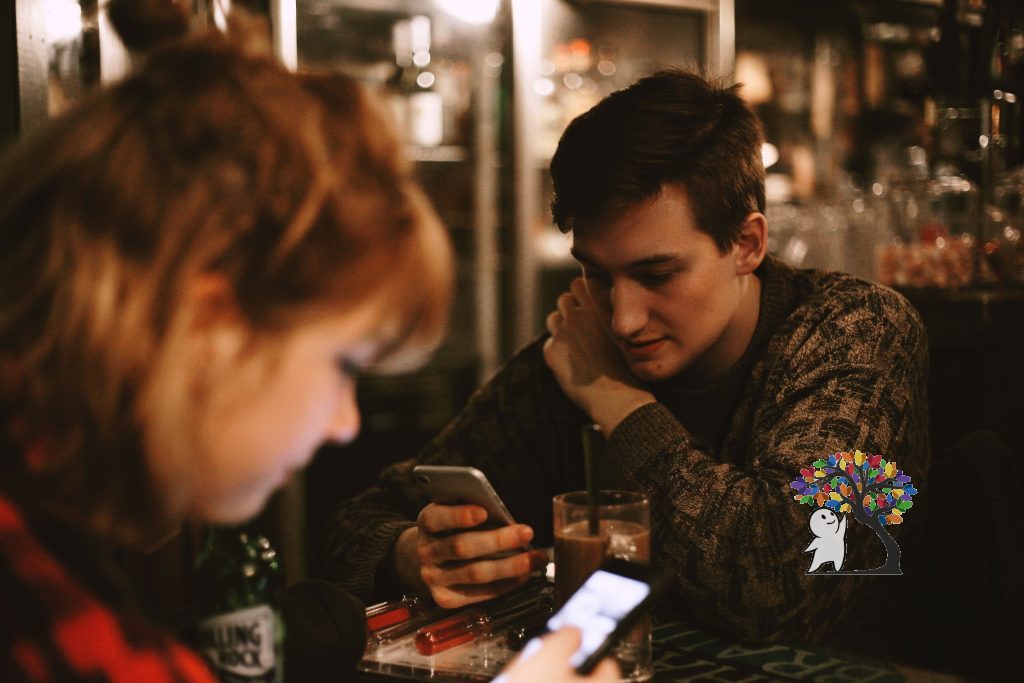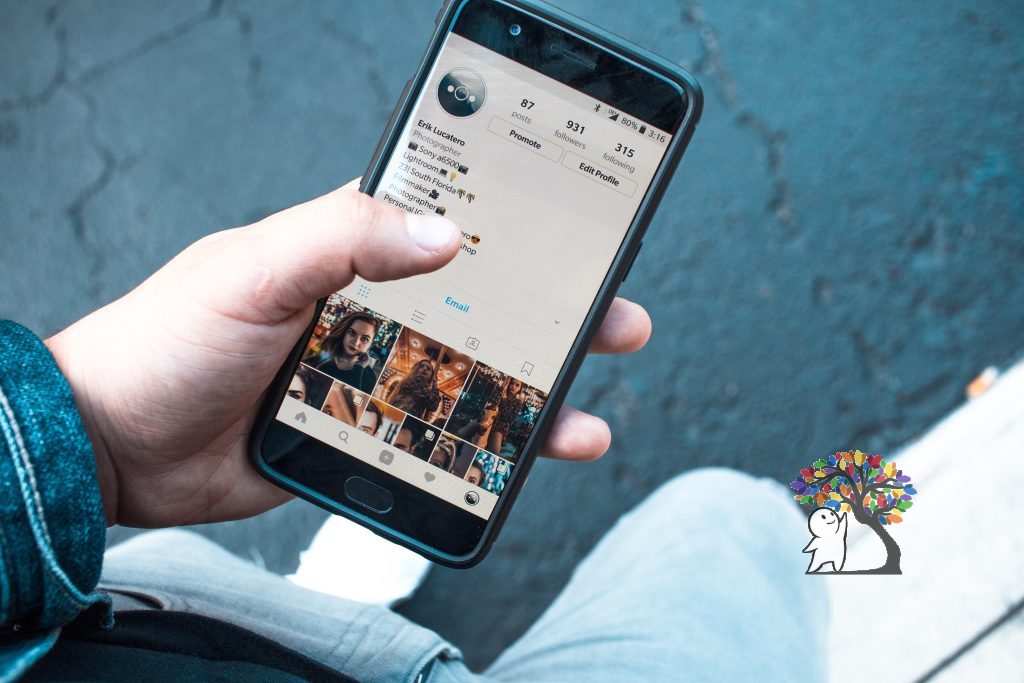Social Media is Affecting Your Relationships, And Here Are 10 Reasons Why We Think So

In decades past lovers used to exchange letters as a way to communicate their feelings for each other. We’ve come a long way since then. Today, our romances are publicly displayed as “Facebook relationships,” and across social media. When we start dating someone, all of our “friends” (a lot of whom are people we barely know) can scrutinize the person we fell in love with in high detail. When we break up, the entire internet is able to see that we’re “no longer in a relationship.” But is this really healthy? How is this affecting the psychology of our relationships?
1. Virtual Relationships Aren’t Real
The number one thing you have to realize about Facebook is that these virtual social circles we create online are not actually real. We might say we have hundreds of friends, but are all those people really our friends? Of course not. We don’t see those people on a day-to-day basis. The same logic applies to our romantic Facebook relationships. You might be texting someone through Facebook every day, commenting on their pictures, and liking their statuses. But this only creates the illusion that you’re actually close to someone. For real psychological bonds to form between people, two people must physically interact with each other, touch each other, and smile at each other. Substituting emojis for real emotions that you can see on each other’s faces will kill your relationships.
2. Our Personalities Change In The Virtual World
One of the most worrying features of social media is that it allows you to become a different person. Many people have commented that their partner seems to show a different, less authentic side of themselves when they get on social media. The PEW Research Center has released some interesting information about this. According to them, 77% of teen social media users agree that people are less authentic and real when they log in to social media. So in terms of Facebook relationships, you might be texting someone, trying to get to know them, and then once you meet them in real life, you find out that they’re a completely different person. This is a common misconception among social media users; that things like Facebook allows you to get to know someone better when you first meet them.

3. There Is No Privacy On Social Media
When you’re in love with someone, it can create an urge to scream out your feelings to the entire world. Today, that is actually possible through social media, and people are starting to find out that letting the whole world you love someone doesn’t feel as good as they imagined. While shouting out your love from the proverbial mountaintop might feel good, there is also some value to keeping your feelings private and intimate, and just between you and your loved ones. Studies have shown that many people feel that their relationships are too visible to others. And yet in the world of Facebook relationships, that notion goes completely out of the window.
4. Peer Pressures
The fact that there is no privacy on social media leads to a host of other problems with our Facebook relationships. Because everyone is watching, it can often be tempting to do and say things that you don’t actually feel, in an effort to make your relationships seem “normal” to others. This can include posting pictures of you two on dates so everyone can see your relationship is going well (even when you might be having troubles), and couples might also say publicly, “I love you,” even when they don’t actually mean it. This is often due to the pressure many people feel to compete with other couples. These couples might also be faking it too. This crazy competitive nature of social media is a hallmark of all Facebook relationships, not just intimate ones. Many people feel like Facebook is a competition to see who has the most friends.
5. Your Past Is On Display
One of the scariest things about Facebook relationships is that what happens on Facebook stays on Facebook. This includes your relationship history. Many people have exes that they want to forget ever existed. But that’s not possible with Facebook. Someone who is interested in you will probably scroll through your history and see who you’ve dated in the past. This might not be a big deal for some people, but for others, it could lead to problems. What if you don’t want someone to know how many boyfriends or girlfriends you’ve had in the past. What if you dated someone who is an enemy of the person you just started dating? Say you dated someone in high school that later turned out to be a criminal. Would you want everyone to know that?

6. It’s Hard To Let Go
Before the rise of Facebook relationships, breaking up was pretty final. You both went your separate ways, and that was that. You might even change your phone number so that person couldn’t contact you. But Facebook changes all that. People who break up and remain friends on Facebook can see everything that that person is doing. Seeing them again is just a click away. This makes letting go and moving on so much harder. While it’s true that people can block each other, you can still go to that person’s profile and see a few of their pictures. Additionally, you can talk to your friends who still have them added, and they can tell you what they’re up to. You might even be able to see what events they’re going to, and be tempted to go there and see them again.
7. Jealousy
The fact that you can see everything that your partner is doing on social media leads to another problem with Facebook relationships: Jealousy. It’s easy to see pretty much everything your partner is doing, and if that involves hanging out with other people, it can make you uneasy. A classic example is a girl who has a lot of “guy friends.” If she posts pictures of them hanging out, it can make her boyfriend pretty jealous. But it can go the other way too. Guys who “like” pictures of other girls can instantly suffer the wrath of their jealous girlfriends. Finally, even when two people have broken up, jealousy can create problems on Facebook. People often post pictures of their new boyfriend or girlfriend in order to make their exes feel jealous. They’re basically saying, “Look at men, I’ve found someone even better than you.” It’s yet another example of how the competitive nature of social media negatively effects Facebook relationships.
8. Being “Facebook Official”
“Facebook official” refers to a relationship where two partners have changed their relationship status on Facebook to “in a relationship.” For many people, this is the moment when the relationship becomes real and official, and it’s incredibly important to them. But this becomes a source of conflict as well. First of all, when do you become “Facebook official?” Some people say as soon as you start dating, whereas others say that you should wait a few months until you’re sure the relationship is going to work out. Others still don’t want to become “Facebook official” at all. Most of the time, it’s not that these people don’t take the relationship seriously, they just don’t see it as important. But this can be misinterpreted by their partners as being embarrassed about dating them, or not taking the relationship seriously. Most of the time, these people just feel like creating an official Facebook relationship isn’t going to make their relationship any more or less real.
9. Surveillance Increases Aggression
An interesting psychological fact that is relevant to Facebook relationships deals with surveillance. If you think about it, Facebook is just mass surveillance. I’m not saying the government is spying on you (although they probably are), I’m saying that everyone in your social circle is spying on each other. Everyone is able to keep an eye on everyone, and the psychological effects of this are interesting. People on Facebook constantly feel like they’re “performing” for an audience, and this can lead to a lot of pressure. Dr. Jennifer Bevan, a professor at Chapman University’s Communications department, revealed the link between surveillance and aggression: “Surveillance is linked with increased physical and psychological aggression, and should thus be avoided as a compulsive response to social media jealousy.”
10. Alienating Your Friends
Another psychological effect that Facebook relationships have concern your friends. You may not realize it, but posting pictures of you and your lover together can alienate your friends. This is again due to the competitive nature of Facebook. You wouldn’t call everyone you know and brag about how well your relationship is going. But that’s pretty much what you’re doing when you post pictures of your dates. Or at least, that’s what people watching see it as. This is especially true for our single friends who watch and wish they had a similar relationship. You can end up pushing people away, even if this was not your intention. A study of Facebook done by the University of Birmingham found that: “Clinical researchers noted that people who share pictures on Facebook have less intimacy in their personal relationships. Researchers think that when the users try to advertise how attractive they are, they can end up alienating some friends who envy them.”
https://psychcentral.com/lib/social-medias-impact-on-relationships/
https://www.bustle.com/articles/103105-how-social-media-can-affect-relationships-plus-6-red-flags-to-look-out-for
http://www.thepantheronline.com/a-e/social-media-affects-modern-college-relationships



Responses